Vietnam at the crossroads: The race to secure pharma investment
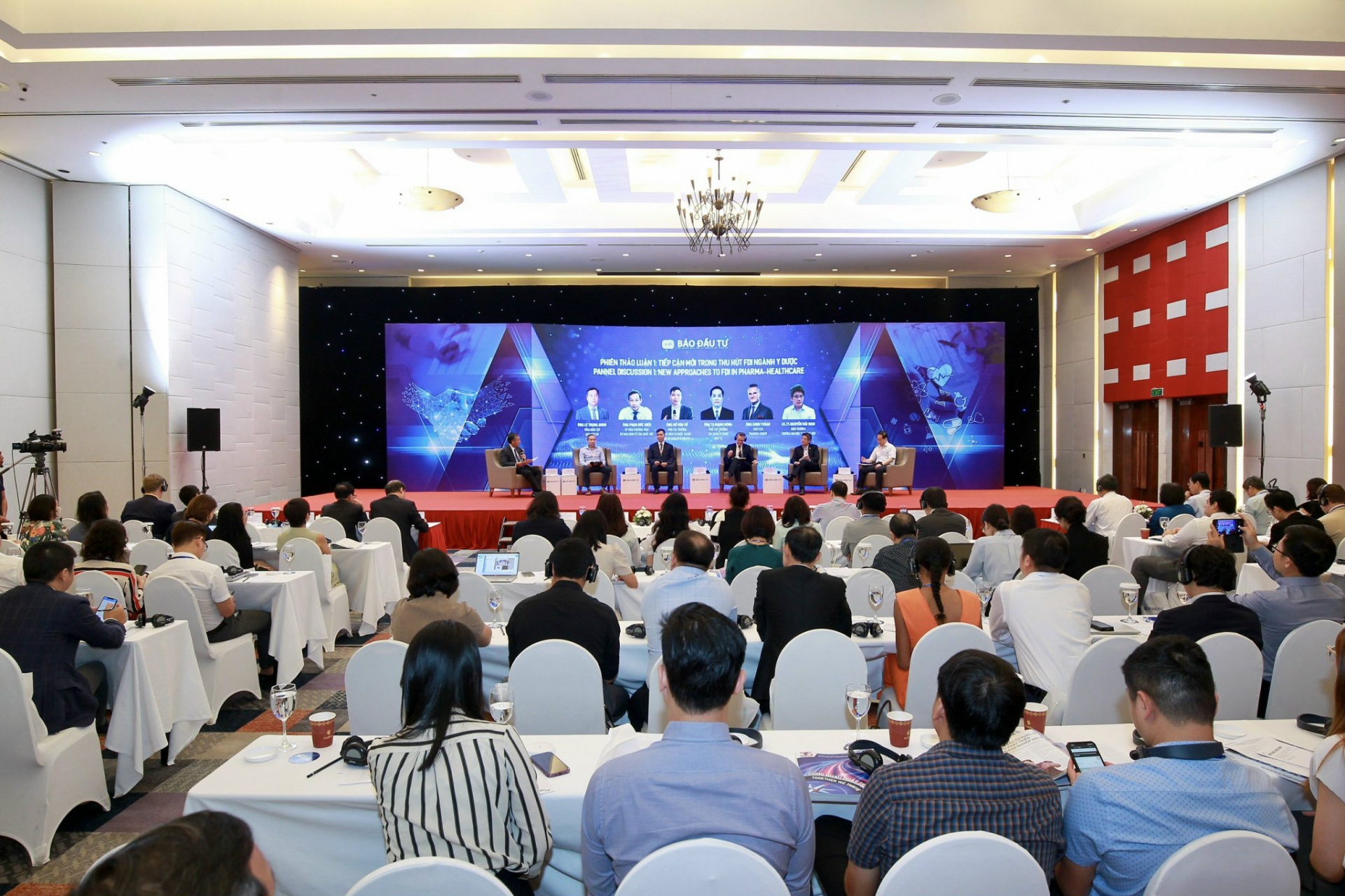 |
The pharmaceutical sector has emerged as a potent magnet for global investment, given its potential for robust growth and the enhancement of research and development (R&D) capabilities. Since 2015, the industry has seen an influx of trillions in investment, leading to a proliferation of innovative solutions that span across various nations.
The critical question that arises is: How can countries effectively attract foreign direct investment (FDI) into this burgeoning sector?
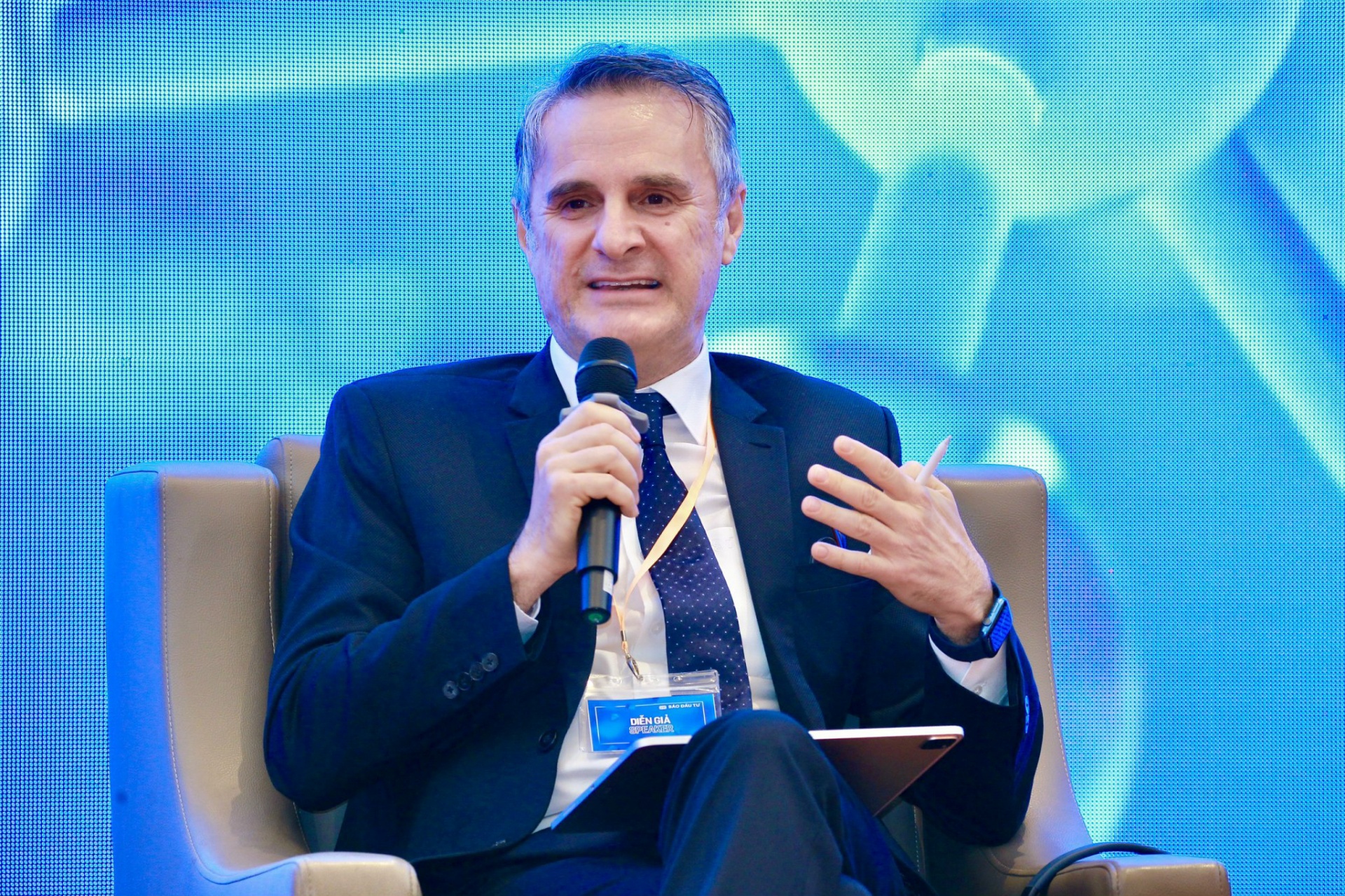 |
| Emin Turan, Chairman of Pharma Group |
Emin Turan, chairman of the Pharma Group, believed that the ramifications of such investment are far-reaching, with the potential to permeate the entire economy and foster a robust ecosystem – a prospect that every nation covets. A recent report on innovation singled out Singapore as a dominant force in this arena, but it is far from being the sole player.
“For Vietnam, the challenge is two-fold; constructing a resilient ecosystem and establishing a comprehensive legal framework that will underpin success. The economic benefits and ripple effects for the pharma industry are evident, but the crux of the matter is to engage with the innovation phase right from the outset,” Turan said.
“If the solutions are home-grown, the economic windfall could be even more substantial. The race to attract investment in pharmaceutical innovation is far from over. While some countries may have taken the lead, those in the rear have the opportunity to learn and, as the saying goes, "stand on the shoulders of giants."
He emphasised, "Vietnam, in this context, finds itself at a critical juncture."
International experience underscores that Vietnam still has a considerable gap to bridge in terms of innovation. Prior to 2021, less than 10 per cent of the 460 active pharmaceutical ingredients originated from developing countries. Furthermore, only one in eleven patients could access these ingredients, indicating that Vietnam's pace in bridging this gap has been less than optimal.
 |
Turan further noted that Vietnam needs to bolster its innovative capabilities and expedite its access to various types of drugs. To entice innovative investment, Vietnam must position itself as an attractive market for investors. This involves creating stronger conditions for investors and establishing the necessary preconditions for market development.
“Policies on procurement and bidding are pivotal. In a country like Vietnam, where resources are finite and investment is required for infrastructure such as roads and airports, it is imperative to unlock capital for the pharmaceutical industry. Sole reliance on the state budget is not a sustainable strategy,” he said.
“A financial mechanism that encourages private sector involvement is needed. Although Vietnam prioritises pharmaceuticals, mechanisms to mobilise larger finances are required, thereby benefiting patients with a wider range of choices.”
The Vietnamese economy, as indicated by the business confidence index (EuroCham), has seen a slight dip, with a decline in development momentum, investment demand, and recruitment.
So, what are Vietnam's advantages in attracting both innovative and generic pharmaceuticals?
From the perspective of the Pharma Group, Vietnam's political and social stability is its most significant advantage. Additionally, Vietnam's geographical location is beneficial.
“The domestic market, despite occasional fluctuations, is developing rapidly. Vietnam's strong integration through agreements such as the EU-Vietnam Free Trade Agreement, the UK-Vietnam Free Trade Agreement, and the Comprehensive and Progressive Agreement for Trans-Pacific Partnership is a significant advantage,” Turan added.
With the right strategic efforts, Vietnam can draw more investment in both innovative and generic pharmaceuticals, positioning itself as a key player in the global pharma industry.
 |
| Do Van Su, deputy director of the Foreign Investment Agency under The Ministry of Planning and Investment |
According to Do Van Su, deputy director of the Foreign Investment Agency (FIA) under The Ministry of Planning and Investment, despite the Vietnamese government's prioritisation of healthcare as a key sector for investment, and with substantial support and incentives for privatisation, the level of funding remains modest.
According to FIA data, the total investment in healthcare pharmaceuticals stands at approximately $5.5 billion, spread across 341 projects.
This figure represents a mere 1.3 per cent of the total registered FDI in Vietnam. Given the size of Vietnam's economy, which caters to a population of over 100 million, this sector – a subset of the broader manufacturing industry – is notably underfunded.
Currently, there are 188 active projects in pharmaceuticals, with a total investment of $1.3 billion. However, this figure does not account for the capital invested in publicly listed companies.
Su said, “Historically, the pharmaceutical sector was entirely state-owned. Following a wave of privatisation, private enterprises have entered the fray. For foreign investors in Vietnam, a supportive domestic ecosystem is crucial to facilitate their operations and reduce costs. However, such an ecosystem, which would include supply companies, is currently lacking in Vietnam, thereby deterring foreign investors.”
However, the question remains: Why has Vietnam not been successful in attracting investment in pharmaceutical innovation?
Su explained that there are very few internationally recognised brands in Vietnam that allure the attention of large foreign funds.
"Only a handful of Vietnamese enterprises have been mentioned in discussions by large funds. Currently, there are three or four pharmaceutical enterprises listed on the Vietnamese stock exchanges. State-owned enterprises continue to be constrained by state regulations, while private enterprises face their own set of challenges," Su shared.
Foreign investors have urged Vietnam to liberalise its distribution market. However, the nation's cautious approach has meant that it has not yet fully opened up its market to foreign competition.
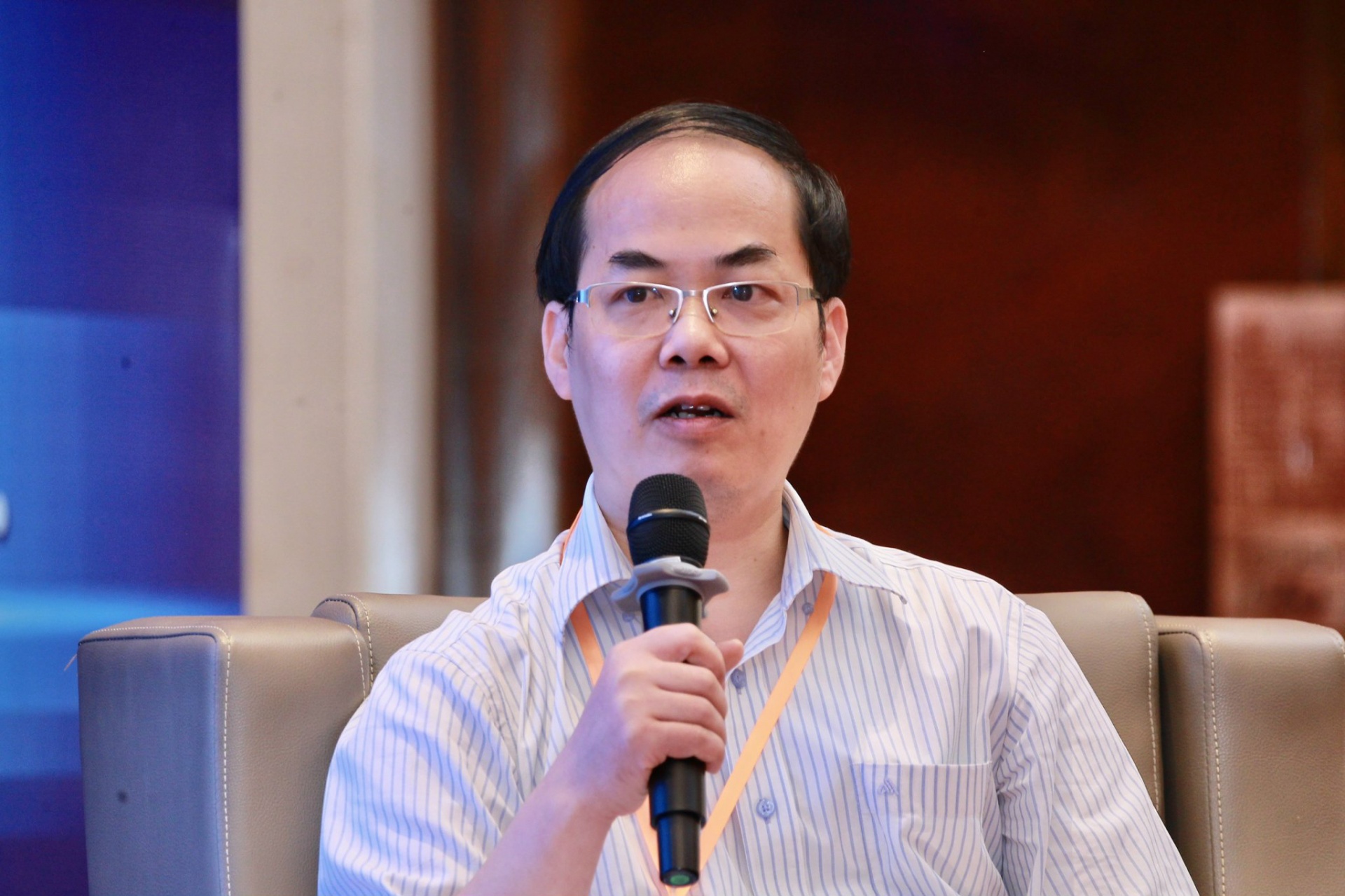 |
| Ta Manh Hung, deputy director of the Drug Administration of Vietnam under the Ministry of Health |
Ta Manh Hung, deputy director of the Drug Administration of Vietnam under the Ministry of Health, noted that the level of scientific and technological content, as well as R&D, is not high in Vietnam. Despite a high rate of pharmaceutical human resource training, the sector is not reaching its full potential.
Prof. Nguyen Hai Nam, rector of Hanoi University of Pharmacy – Vietnam’s leading academic institution in this area – echoed this sentiment, stating that domestic companies still pay insufficient attention to investing in science, technology, and innovation.
In general, Vietnamese students in the pharmaceutical field are of an exceptionally high calibre, arguably among the nation's best, and they boast an array of brilliant minds. However, it must be acknowledged that the current academic programmes and infrastructure are not on par with those in more developed countries.
There is a pressing need for collaboration among various stakeholders, including the government, academic institutions, and businesses, to enhance career prospects in this field.
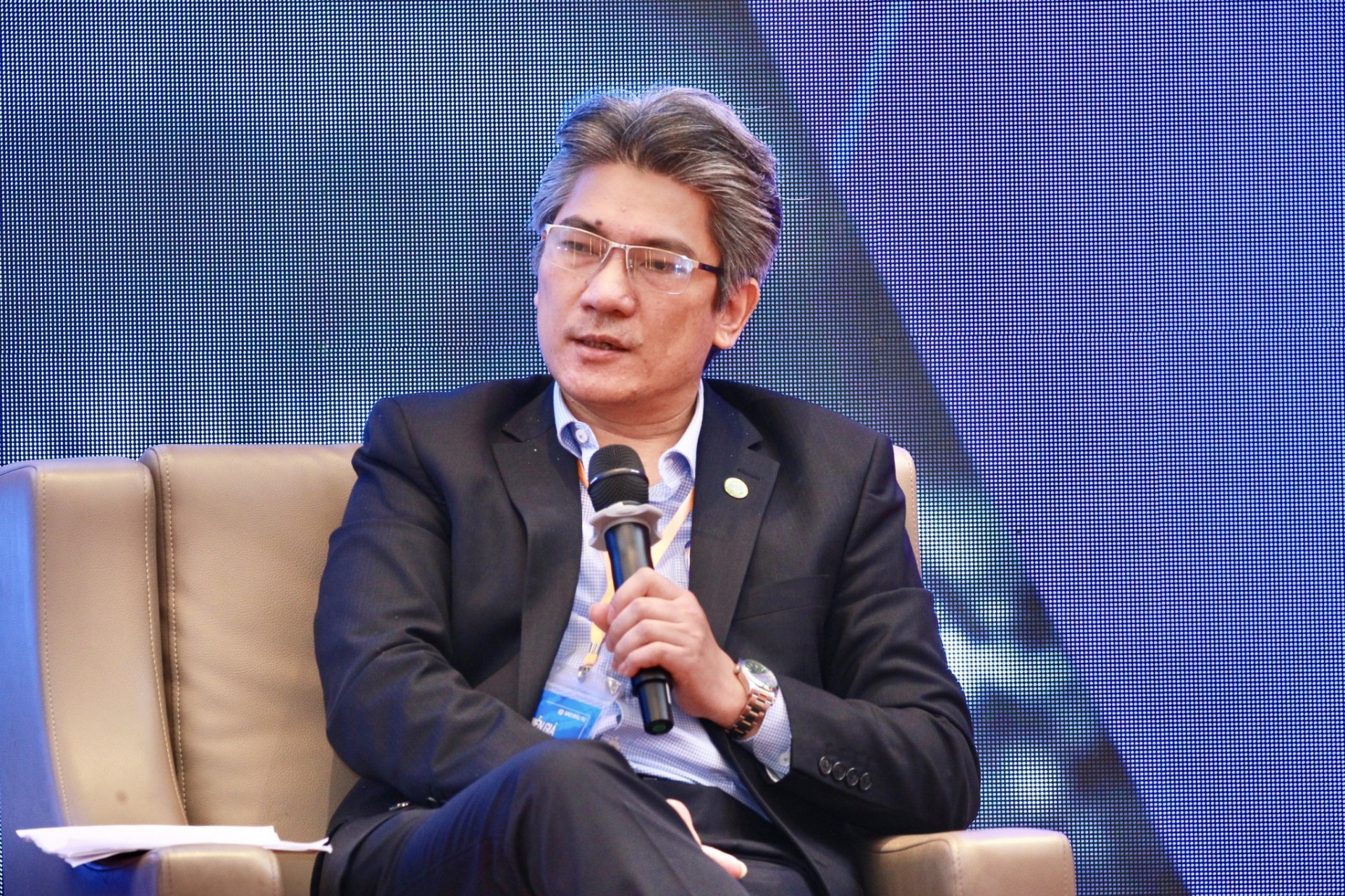 |
| Prof. Nguyen Hai Nam, rector of Hanoi University of Pharmacy |
“From a business perspective, I believe that the introduction of more supportive tax policies could serve as a significant incentive to attract further FDI into this sector. The potential for growth and innovation in Vietnam's pharmaceutical industry is vast, but realising this potential will require a concerted effort from all parties involved. By fostering a supportive environment for both education and business, Vietnam can position itself as a significant player in the global pharmaceutical industry,” Nam said.
He also called for the need for the localisation of input materials as soon as possible.
Phan Duc Hieu, standing member of the Economic Committee of the National Assembly, revealed that the Ministry of Industry and Trade is currently developing legislation focused on the advancement of spearhead industries and breakthrough technologies. This move, coupled with the existing pharmaceutical law, provides a legal framework that can help shape the future of the country's industrial landscape.
 |
| Phan Duc Hieu, standing member of the Economic Committee of the National Assembly |
“However, it is crucial that the policies introduced align with the needs and wants of investors, rather than solely reflecting the government's objectives,” Hieu opined.
“Many foreign investors prioritise aspects such as protection and risk management before considering tax incentives. Therefore, the government needs to ensure that these concerns are addressed in its legislative efforts.”
He acknowledged that the competition within the region is fierce. While Vietnam has its advantages, other countries in the region have their own unique strengths as well. As such, Vietnam needs to strategically position itself to compete more effectively. This will require a different and more potent approach to change.
Hieu feels that stronger multi-stakeholder collaboration is also needed. The government, private sector, and academic institutions must work together to create an environment that fosters growth and innovation. This opportunity should also be extended to Vietnamese enterprises, allowing them to play a more significant role in the country's industrial development.
 | VIR to host health conference on July 20 Around 200 representatives from relevant ministries, agencies, international organisations, and the business community, including well-known experts, will gather at a health conference on July 20 to discuss innovative approaches to pharma-healthcare development. |
 | Dentons LuatViet advises on groundbreaking deal in healthcare sector Prestigious law firm, Dentons LuatViet, has provided expert counsel as the Vietnamese representative for Singapore-based Thomson Medical Group in its successful acquisition of Far East Medical Vietnam Limited. This landmark deal represents one of the largest healthcare mergers in Vietnam and Southeast Asia. |
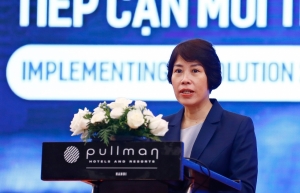 | More than 200 participants join VIR's conference on pharma and medical sector Over 200 attendees gathered at the conference to focus discussions on the importance of Resolution No.29-NQ/TW to the future sustainable development of Vietnam’s health system, learning lessons from other nations, identifying where there is room for improvement, and promoting public-private collaborations. |
What the stars mean:
★ Poor ★ ★ Promising ★★★ Good ★★★★ Very good ★★★★★ Exceptional
Related Contents
Latest News
More News
- MAE names big 10 policy wins in 2025 (February 06, 2026 | 08:00)
- US firms deepen energy engagement with Vietnam (February 05, 2026 | 17:23)
- Vietnam records solid FDI performance in January (February 05, 2026 | 17:11)
- Site clearance work launched for Dung Quat refinery upgrade (February 04, 2026 | 18:06)
- Masan High-Tech Materials reports profit: a view from Nui Phao mine (February 04, 2026 | 16:13)
- Hermes joins Long Thanh cargo terminal development (February 04, 2026 | 15:59)
- SCG enhances production and distribution in Vietnam (February 04, 2026 | 08:00)
- UNIVACCO strengthens Asia expansion with Vietnam facility (February 03, 2026 | 08:00)
- Cai Mep Ha Port project wins approval with $1.95bn investment (February 02, 2026 | 16:17)
- Repositioning Vietnam in Asia’s manufacturing race (February 02, 2026 | 16:00)

 Tag:
Tag:




















 Mobile Version
Mobile Version